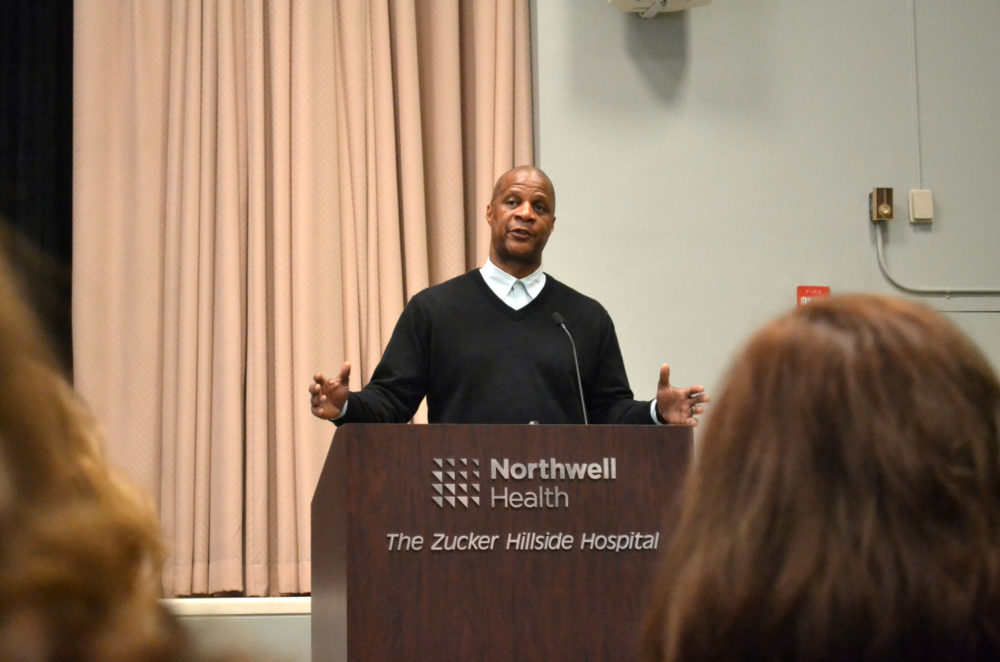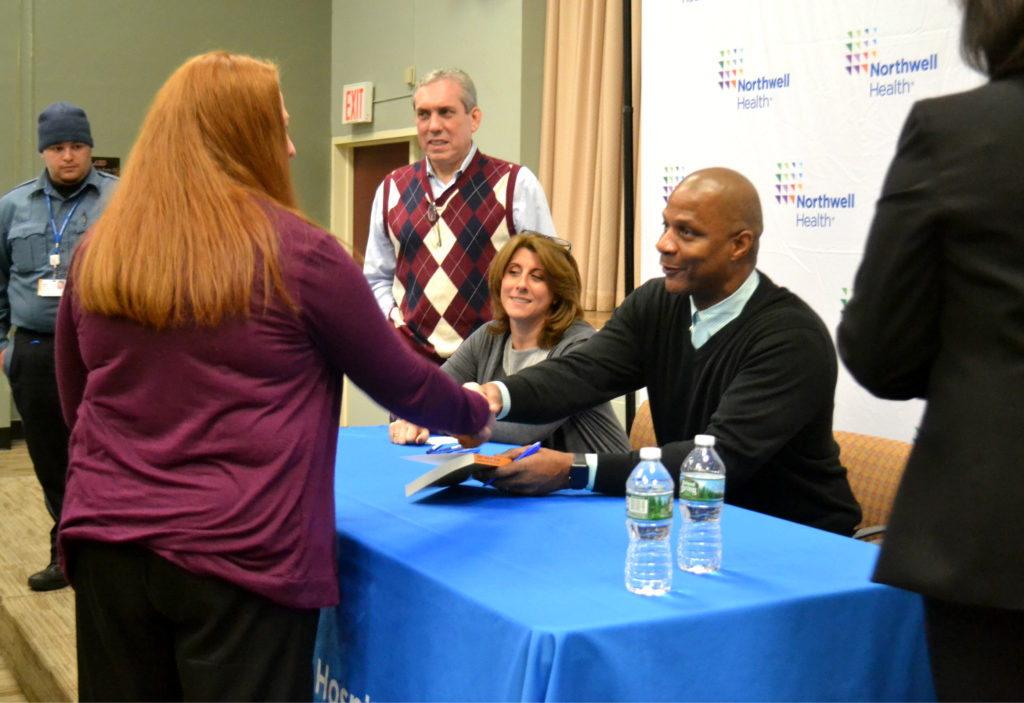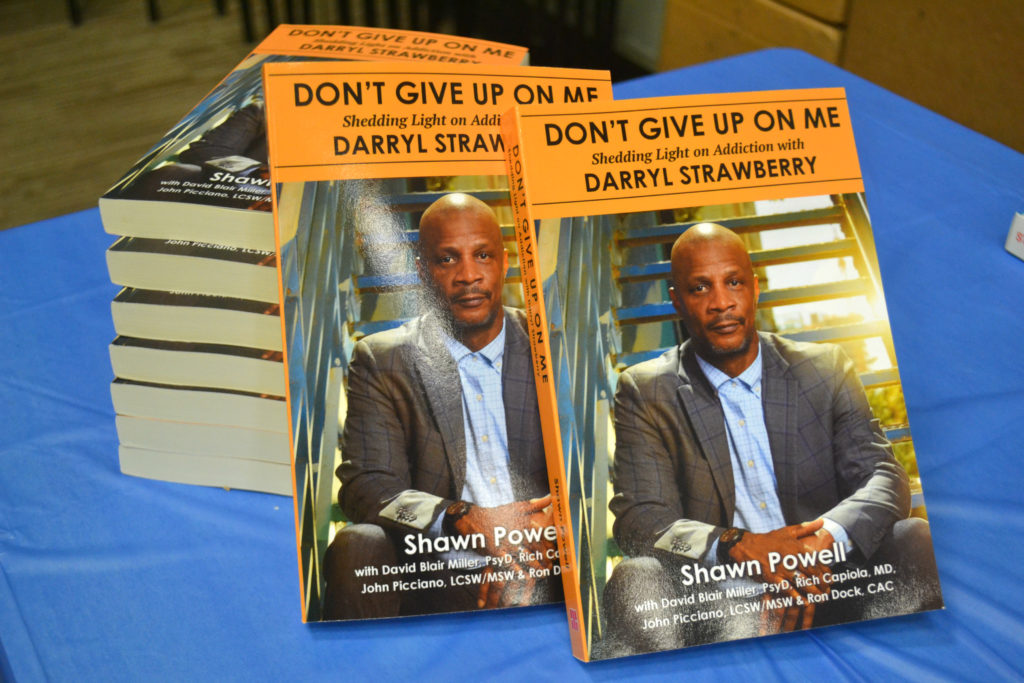Darryl Strawberry may have finished his baseball career years ago — but his purpose in life has only just begun.
The ex-New York Met and Yankee slugger visited staff and educators at the Zucker Hillside Hospital in Glen Oaks to discuss his personal struggles with drug, alcohol and sex addiction and his road to recovery.
“America itself is in a crisis like never before,” Strawberry said at the Jan. 22 talk. “We have so many young people OD’ing, dying and losing their lives. And it’s because we never paid attention to the fact that addiction is real and it could happen to anybody.”
Strawberry’s personal struggle with drug addiction played out in the public eye from the 1980s into the early 2000s. The eight-time All-Star and four-time World Series champion was suspended three times by MLB for substance abuse. After retiring from baseball, he had several drug-related run-ins with the law.
Now 14 years clean, Strawberry is a Christian minster and author. He signed copies of his most recent publication, “Don’t Give Up on Me…Shedding Light on Addiction,” for attendees at the January appearance. The book was written in conjunction with psychologists and addiction experts.
“We’re dealing with a deadly disease,” Strawberry said. “[Addiction] is just like cancer; it’s just like anything else. We have rallies for cancer: why not rallies for addiction?”
The national opioid crisis is a major concern, he continued. On a local level, Queens saw 172 suspected fatal drug overdoses in 2017, according to District Attorney Richard A Brown. Nearly a third of these overdoses involved fentanyl, a synthetic opioid that is 50 to 100 times stronger than heroin. Fentanyl been the latest source of concern in the escalating national crisis.
In a visit to a Long Island church a few years ago, a young man approached Strawberry and told the minister he was taking 30 opioids a day. Strawberry found a treatment center for the man, whose story mirrors those of thousands of young people across the United States.
“We as people need to stop saying it’s not in our neighborhood,” he said. “It’s in every neighborhood, everywhere you look, everywhere you go.”
For those who may be dealing with a loved one facing addiction, it’s important to “take a step back.”
“It’s always important to love people right where they’re at, but that doesn’t mean you have to tolerate their behavior,” he said.
As for baseball — the catalyst that first thrust him into the limelight — Strawberry has left that part of his life behind.
“I don’t talk about baseball. I don’t even like it,” he told attendees.
For parents who may be worried their child is developing an addiction, the most important advice is to “pay attention,” Strawberry told QNS.
“We need to get back to family. We need to get back to talking about problems, real problems, at the dinner table,” he said. “Put the cellphones away, turn the computer off, turn the TV off, and let’s talk.”






































